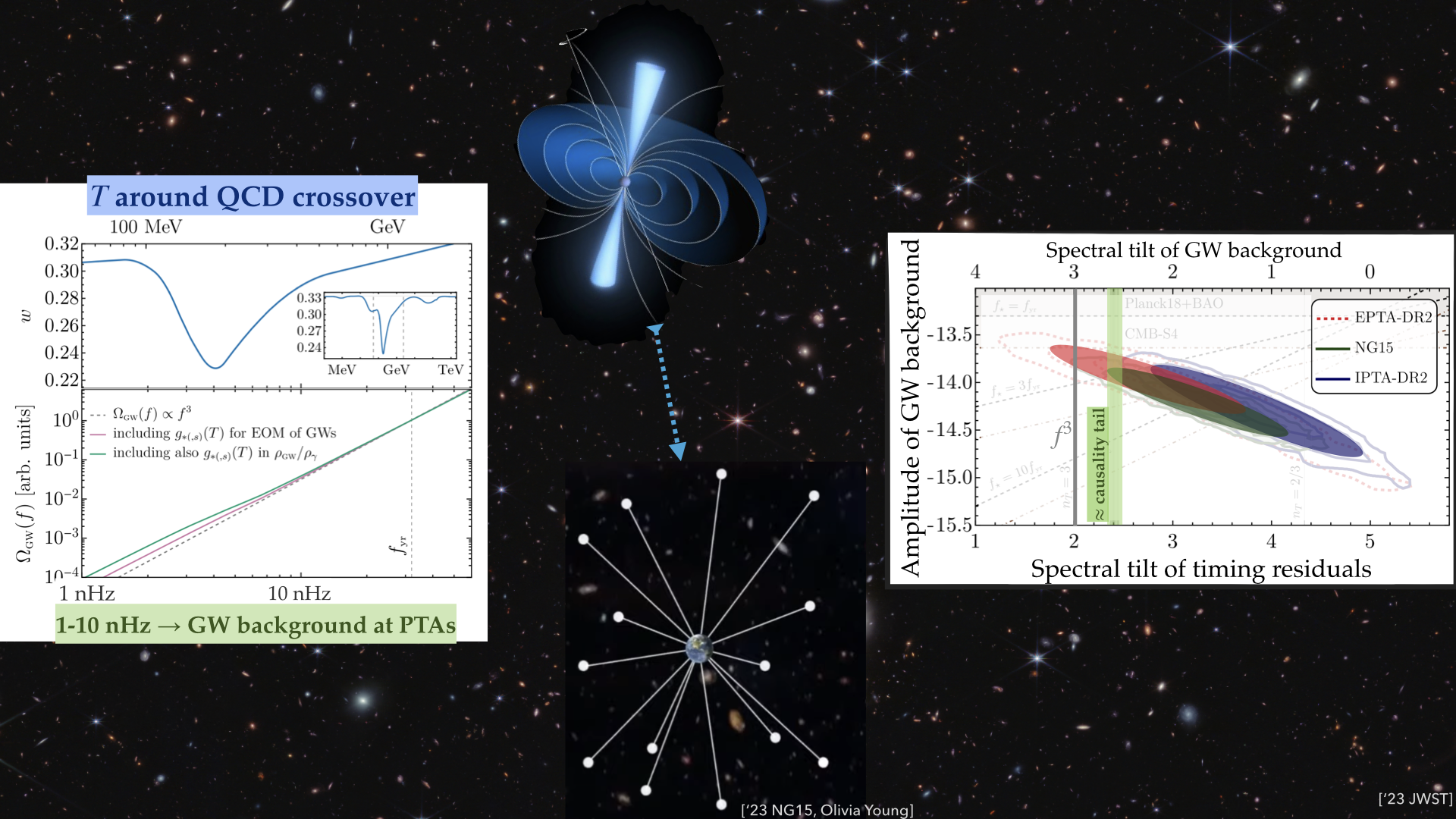Navigation auf uzh.ch
Navigation auf uzh.ch
The work “Footprints of the QCD Crossover on Cosmological Gravitational Waves at Pulsar Timing Arrays”, by Dr. Davide Racco and his collaborators Dr. Gabriele Franciolini and Fabrizio Rompineve, has been awarded with the third prize of the Buchalter Cosmology Prize.


Davide Racco has just joined the “Theory of Fundamental Interactions” group at the University of Zurich and the “Theoretical Cosmology” group at ETH Zurich, this year. In a few months he will start a UZH Postdoc grant in Gino Isidoris group.
The winners of the 2023 Buchalter Cosmology Prize were announced on 11th January at the 243rd meeting of the American Astronomical Society in New Orleans, Louisiana. This annual prize, established by Dr. Ari Buchalter in 2014, seeks to reward new ideas or discoveries that have the potential to produce a breakthrough advance in our understanding of the origin, structure, and evolution of the Universe.
Pulsar Timing Arrays have recently reported evidence for a gravitational wave (GW) background, and the pending question is whether the signal originates from mergers of supermassive black holes or the early Universe. This paper provides a distinctive signature of the GW background sourced by a wide class of primordial phenomena: the low-frequency tail of the spectrum is modified by the occurrence of QCD confinement. The inclusion of these Standard Model effects has an important impact on model comparison in latest PTA datasets.
Davide explains, "The gravitational wave background that was recently detected by Pulsar Timing Arrays (PTAs) opens the question as to what its origin is. Our research shows that including Standard Model effects is relevant for model comparison in the analysis of the latest PTA datasets."
The work by Davide Racco and collaborators has been recognized by the judging panel for “providing an interesting and timely test for a potential early universe contribution to the stochastic background of gravitational waves, arising from features imprinted by the QCD phase transition that could be detected by pulsar timing arrays.”
https://inspirehep.net/literature/2672883